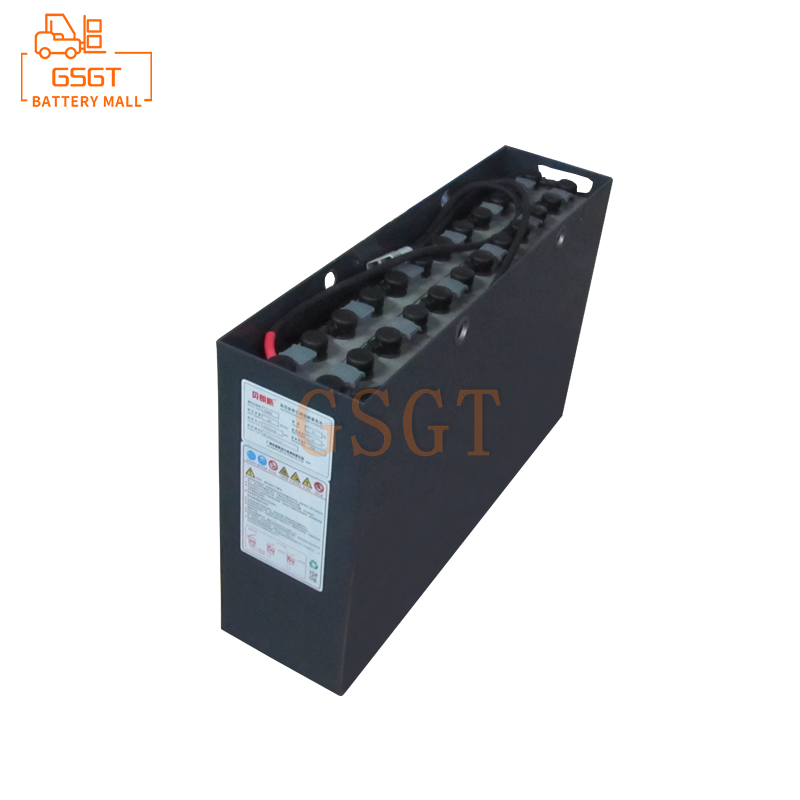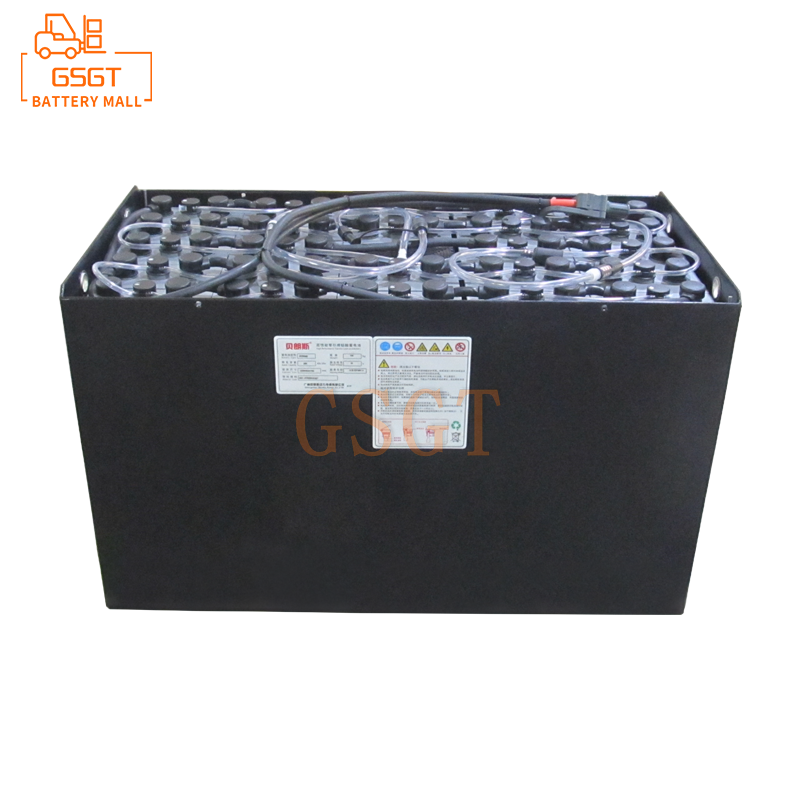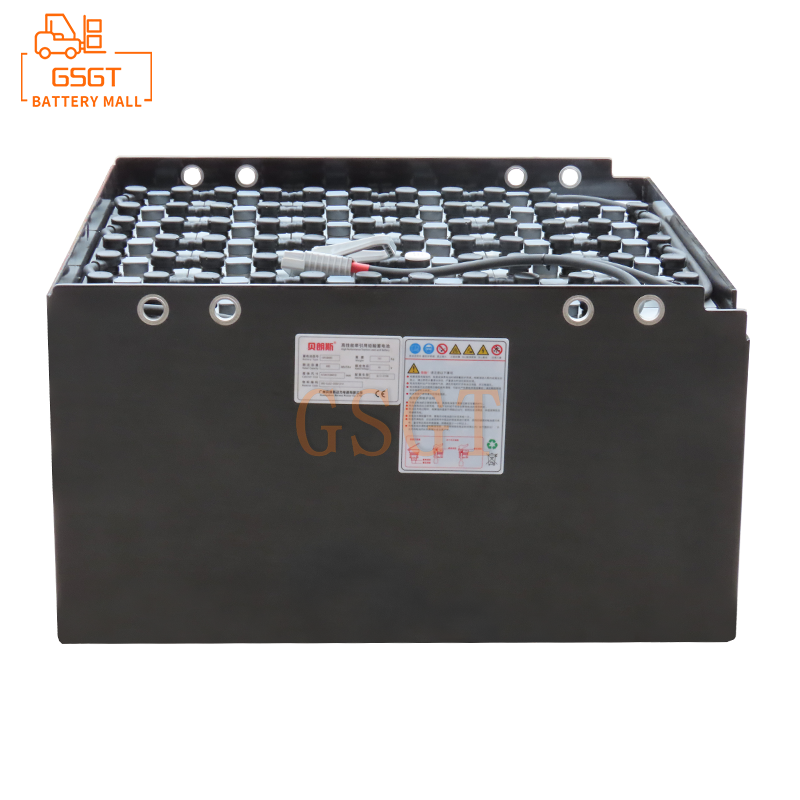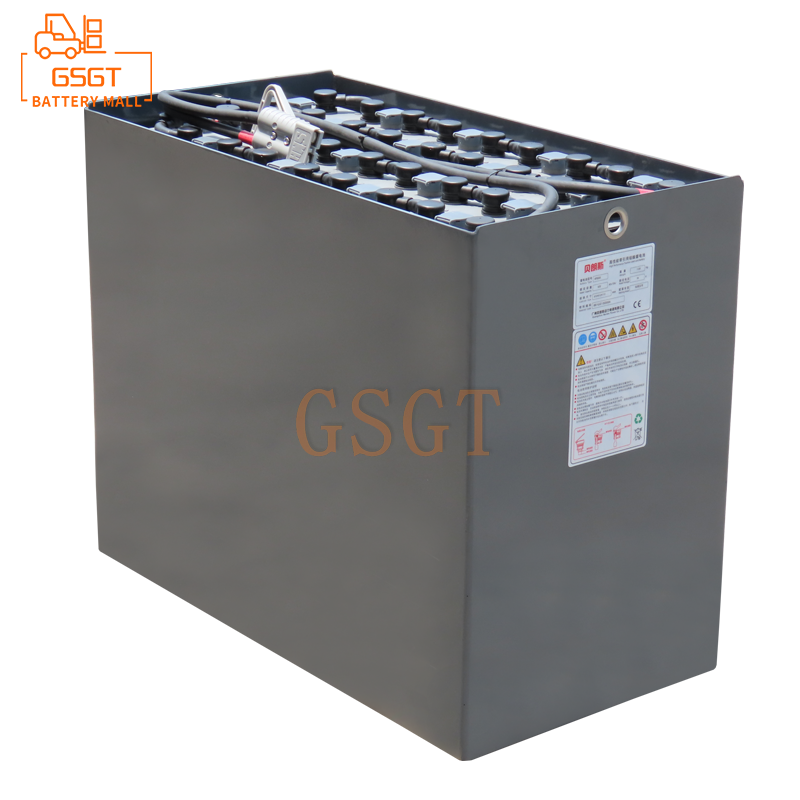Time:2025-05-30 10:11:57
Browse:638
Introduction
In the field of modern logistics and industrial production, forklifts, as key material handling equipment, their performance and efficiency directly affect the operating costs and production benefits of enterprises. As one of the main power sources for forklifts, lead-acid batteries, after years of development and technological innovation, have occupied an important position in the forklift power market with their mature technology, stable performance and good cost performance. However, with the increasing diversity and complexity of production scenarios in various industries, general-purpose lead-acid batteries have become difficult to meet the operational requirements of all forklifts. Against this backdrop, customized lead-acid batteries for forklifts have emerged. By precisely matching the personalized factors such as the usage environment, working intensity, and performance requirements of forklifts, they provide more efficient, reliable, and long-lasting power support for forklifts, becoming a key force in promoting the development of the forklift industry and enhancing the logistics and production efficiency of enterprises.
The background of the emergence of personalized demands for lead-acid batteries in forklifts
The industry development and application scenarios are diversified
In recent years, industries such as logistics, warehousing and manufacturing have flourished, and the application scenarios of forklifts have become increasingly rich and diverse. From the loading and unloading and stacking of goods in large logistics parks to the material handling in narrow passages within small factory workshops; From industries such as food and medicine that have extremely high requirements for hygiene and environment to harsh working environments like ports and mines that have strict requirements for battery performance, different industries and scenarios have put forward differentiated demands for the functions and performance of forklifts. For instance, in cold chain logistics, forklifts need to maintain stable operation in low-temperature environments, and batteries must have excellent low-temperature performance. In the electronic manufacturing workshop, forklifts need to meet the operation requirements of high precision and low noise, and have higher demands for the output stability and cleanliness of batteries.
The demand for forklift technology upgrade and performance optimization
With the continuous advancement of forklift technology, new types of forklifts are constantly being upgraded in terms of design, function and efficiency. Electric forklifts are gradually replacing traditional internal combustion forklifts and becoming the mainstream in the market. Their performance requirements for power sources are also becoming more stringent. To enhance the working efficiency of forklifts, reduce energy consumption and operating costs, forklift manufacturers and users have put forward higher requirements for key indicators such as energy density, charge and discharge performance, and cycle life of lead-acid batteries. Meanwhile, some high-end forklifts are equipped with advanced intelligent control systems, which require the battery to be precisely matched with the overall vehicle control system to achieve more efficient energy management and equipment operation monitoring.
Cost control and sustainable development considerations
In business operations, cost control is an eternal theme. Forklifts, as important production equipment for enterprises, have their procurement, usage and maintenance costs directly related to the economic benefits of the enterprises. In certain specific scenarios, general-purpose lead-acid batteries may encounter problems such as frequent replacement, increased maintenance costs, and energy waste due to performance mismatch. Customized lead-acid batteries, by precisely adapting to the operational requirements of forklifts, can effectively extend battery life, reduce maintenance frequency, and enhance energy utilization efficiency, thereby helping enterprises achieve long-term cost control. Furthermore, against the backdrop of the global advocacy for sustainable development, when designing customized lead-acid batteries, environmental protection factors can be fully considered, such as using more environmentally friendly materials and optimizing battery structures to enhance recycling rates, to help enterprises implement the concept of green development.
Key factors for customizing lead-acid batteries for forklifts
The voltage matches the capacity
The rated voltage of the motor and the required power output of forklifts of different models and specifications vary. Therefore, the primary task of customizing lead-acid batteries is to ensure that the voltage matches the forklift motor. Both excessively high and low voltages can lead to a decline in motor performance and even damage the motor. Meanwhile, based on the working intensity, operation duration and load conditions of the forklift, accurately calculate and customize the appropriate battery capacity. For instance, for forklifts that need to operate continuously for long periods, frequently start and stop, and have heavy loads, high-capacity lead-acid batteries with strong current discharge capabilities should be equipped to ensure that the forklifts have sufficient power throughout the entire working process. For forklifts that operate for short periods and with light loads, batteries with relatively smaller capacity can be selected to avoid resource waste and increased costs.
External dimensions and installation methods
The spatial layout and structural design of forklift battery compartments vary. Customized lead-acid batteries must be perfectly compatible with forklifts in terms of external dimensions and installation methods. This not only concerns whether the battery can be installed smoothly, but also affects the overall stability and safety of the forklift. When designing custom batteries, it is necessary to precisely measure the dimensions of the forklift battery compartment, including length, width, height and internal structural features, to ensure that the battery has a compact and reasonable shape, can fully utilize the space of the battery compartment, and is firmly and conveniently installed, without displacement or shaking during the forklift's driving and operation. In addition, the wiring method of the battery, the position of the connection terminals and other details also need to be considered to facilitate the connection with the electrical system of the forklift.
Battery performance and characteristic optimization
For different usage environments and operation requirements, the performance and characteristics of customized lead-acid batteries need to be optimized. Forklifts operating in high-temperature environments should have batteries with excellent high-temperature resistance. Special plate materials and electrolyte formulas should be adopted to prevent problems such as plate sulfation and electrolyte drying up at high temperatures, ensuring stable battery performance. For forklifts operating in low-temperature environments, the battery must have excellent low-temperature starting performance and high-rate discharge capacity. By optimizing the internal structure of the battery and the composition of additives, the battery's activity and energy output at low temperatures can be enhanced. For forklifts that require frequent charging and discharging, customized batteries should focus on enhancing cycle life. Advanced production techniques and high-quality raw materials should be adopted to reduce plate wear and active material shedding during the charging and discharging process, thereby extending the battery's service life.
Safety and reliability guarantee
Forklift operations are usually carried out in high-intensity and high-risk industrial environments. Therefore, the safety and reliability of custom lead-acid batteries are of vital importance. During the design and manufacturing process, multiple safety protection measures need to be taken, such as installing safety valves to prevent explosions caused by excessive internal pressure of the battery. It adopts a sealed structure to prevent electrolyte leakage from causing damage to the environment and equipment. Add circuit devices such as short-circuit protection, overcharge and overdischarge protection to ensure that the battery automatically cuts off power in abnormal situations, protecting the safety of the battery and the forklift's electrical system. At the same time, strictly control the production process and quality inspection procedures of batteries, select high-quality raw materials, ensure the reliable quality of each component of the battery, guarantee the overall performance and safety of the battery from the source, and provide a solid backing for the stable operation of forklifts.
The advantages of customizing lead-acid batteries for forklifts
Improve the operational efficiency of forklifts
Customized lead-acid batteries, by precisely matching the power demands of forklifts, can provide stable and powerful power output during forklift operations, avoiding problems such as reduced forklift power and slower speed caused by insufficient battery performance. For instance, for forklifts that frequently perform heavy-load handling, custom-made high-capacity, high-current discharge batteries can enable them to complete handling tasks quickly and efficiently even when fully loaded, reducing the time of a single operation and increasing the number of handling operations per unit time, thereby significantly enhancing the overall operational efficiency of the forklift. Meanwhile, the optimized battery charging and discharging performance can shorten the charging time, increase the actual working hours of the forklift, and further enhance production efficiency.
Extend the battery life
As custom-made lead-acid batteries are tailored to the specific operating conditions of forklifts, they can effectively prevent problems such as overcharging, overdischarging, and excessive depth of discharge during battery use, reduce the wear of battery plates and the shedding of active substances, thereby significantly extending the battery's cycle life. Compared with general-purpose batteries, customized batteries can extend their service life by 20% to 50% or even more under suitable working conditions. This not only reduces the cost expenditure of enterprises caused by frequent battery replacement, but also cuts down the forklift downtime due to battery replacement, ensuring the continuity and stability of production.
Reduce operating costs
In the long term, customized lead-acid batteries can effectively reduce operating costs for enterprises. On the one hand, the extended battery life reduces the procurement and replacement costs of batteries; On the other hand, the efficient energy output and charging and discharging performance reduce energy consumption and save electricity expenses. In addition, as the customized batteries have a higher degree of compatibility with forklifts, the frequency and cost of forklift maintenance caused by battery failures are reduced. For instance, some enterprises, after using custom-made lead-acid batteries, have found through statistical analysis that their annual operating costs related to batteries have decreased by 30% to 40%, demonstrating significant economic benefits.
Enhance the adaptability and reliability of forklifts
Customized lead-acid batteries can enable forklifts to better adapt to various complex and special working environments and operational requirements, enhancing the adaptability and reliability of forklifts. Whether in harsh weather conditions such as high temperature, low temperature and high humidity, or in industrial production sites with a lot of dust and significant vibration, customized batteries can ensure the stable operation of forklifts with their optimized performance and reliable quality. This provides a strong guarantee for enterprises' material handling operations in different scenarios, reduces the risk of forklift failures and production disruptions caused by environmental factors, and enhances the reliability of enterprises' production and operation.
The design and production process of customized lead-acid batteries for forklifts
Demand research and analysis
Before customizing lead-acid batteries, battery manufacturers need to have in-depth communication with forklift users or manufacturers to fully understand detailed information such as the usage scenarios, work intensity, operation time, and load characteristics of the forklift. Meanwhile, collect the technical parameters of the forklift, including the motor model, rated voltage, current requirements, battery compartment size and other data. Through a comprehensive analysis of this information, the specific requirements of forklifts for lead-acid batteries in terms of voltage, capacity, external dimensions, performance characteristics, and safety are clarified, providing an accurate basis for subsequent battery design.
Formulation of battery design plan
Based on the results of demand research and analysis, the battery design team uses professional battery design software and rich design experience to formulate personalized battery design plans. In the plan, key contents such as the structure of the positive and negative plates of the battery, material selection, electrolyte formula, shell material and structure, connection method, and protection circuit design are detailedly planned. Meanwhile, simulation calculations and optimizations are carried out on various performance indicators of the battery to ensure that the designed battery can meet all the customized requirements of the forklift and achieve the best balance in terms of performance, reliability and safety. After the design plan is completed, it is necessary to organize internal experts to conduct a review, verify the rationality and feasibility of the plan, and make modifications and improvements based on the review opinions.
Battery production and manufacturing
In the battery production workshop, manufacturing is carried out strictly in accordance with the standardized production process flow. The production of the plates adopts advanced processes such as pasting, curing and formation to ensure the uniform distribution of the active substances on the plates and the stability of their structure. During the battery assembly process, the assembly accuracy and connection reliability of each component are strictly controlled. Automated welding equipment is used for plate connection to ensure the welding quality. During the electrolyte filling process, precisely control the filling volume and temperature to ensure that the electrolyte fully wets the plates. Meanwhile, multiple quality inspection procedures are set up during the production process to monitor and test the appearance, size, voltage, internal resistance and other parameters of the battery in real time, promptly identify and solve quality problems that occur during the production process, and ensure that each battery meets high-quality standards.

$1060

$3260

$5710

$2960

MESSAGE
Professional And Efficient
Security
Affordable Price
Professional Services